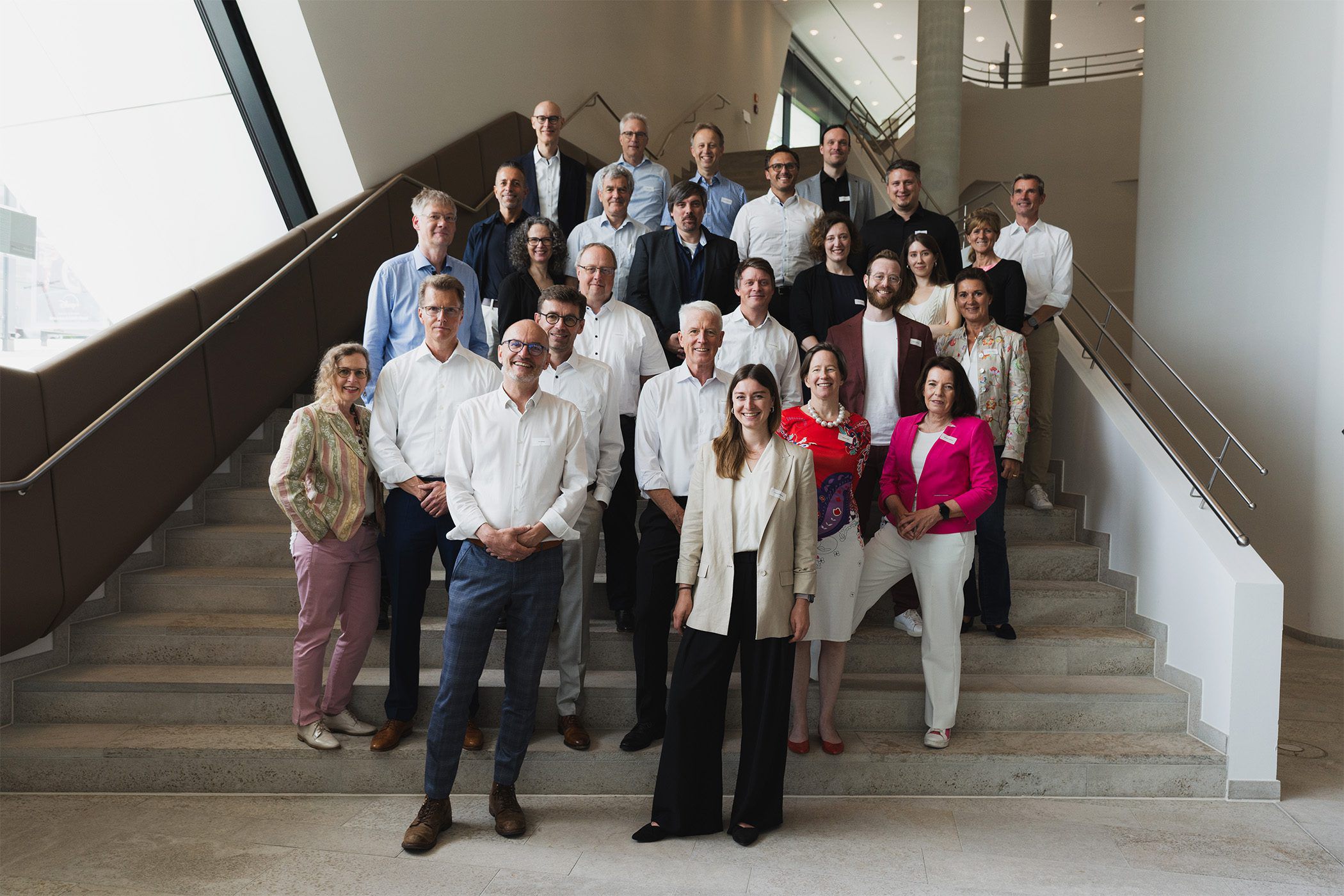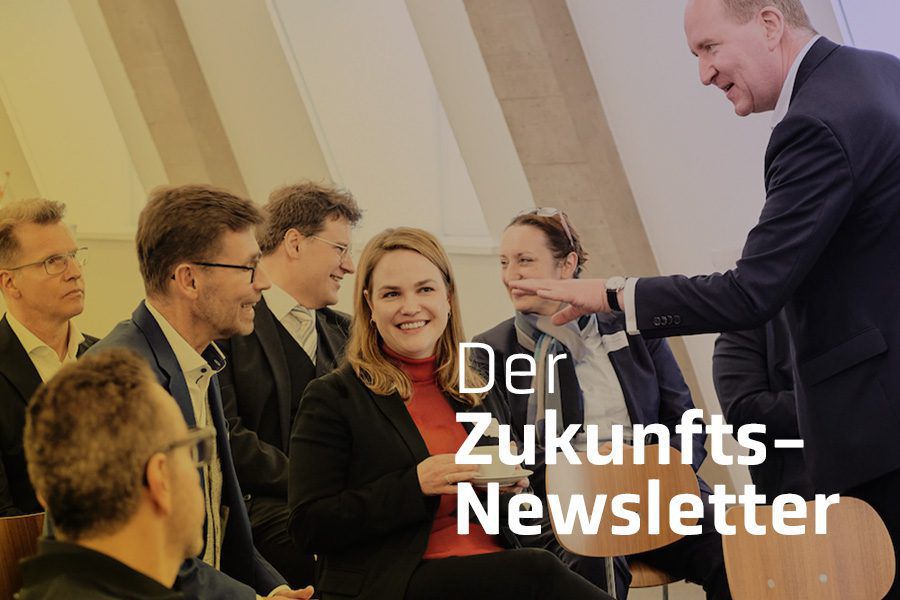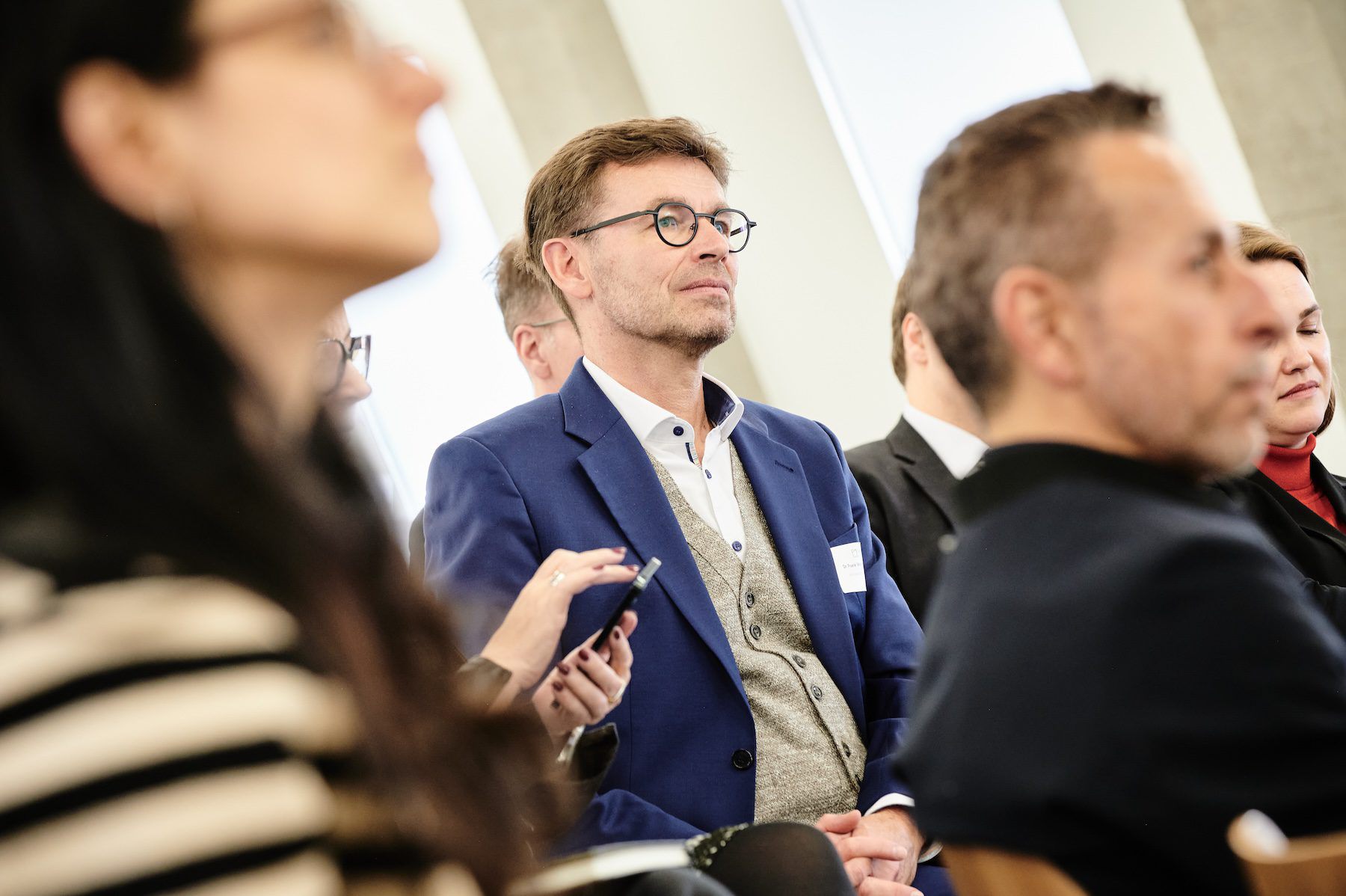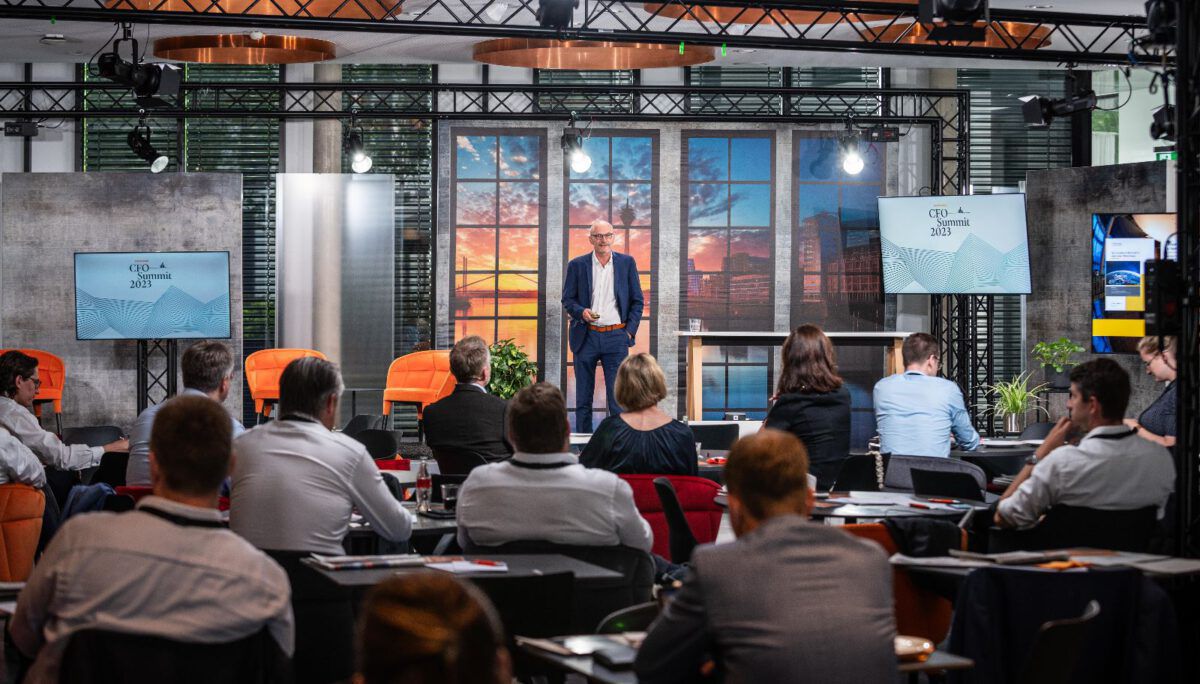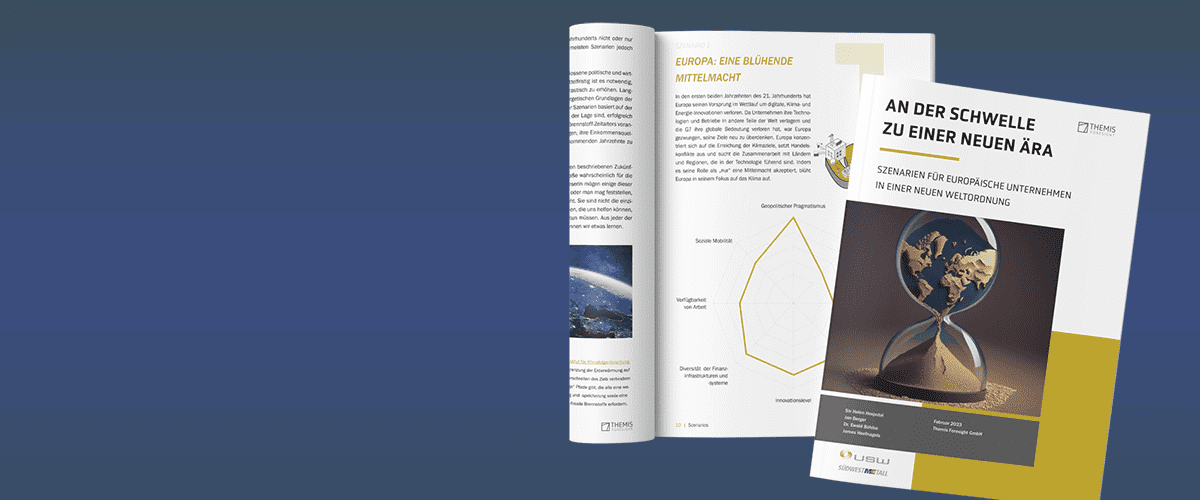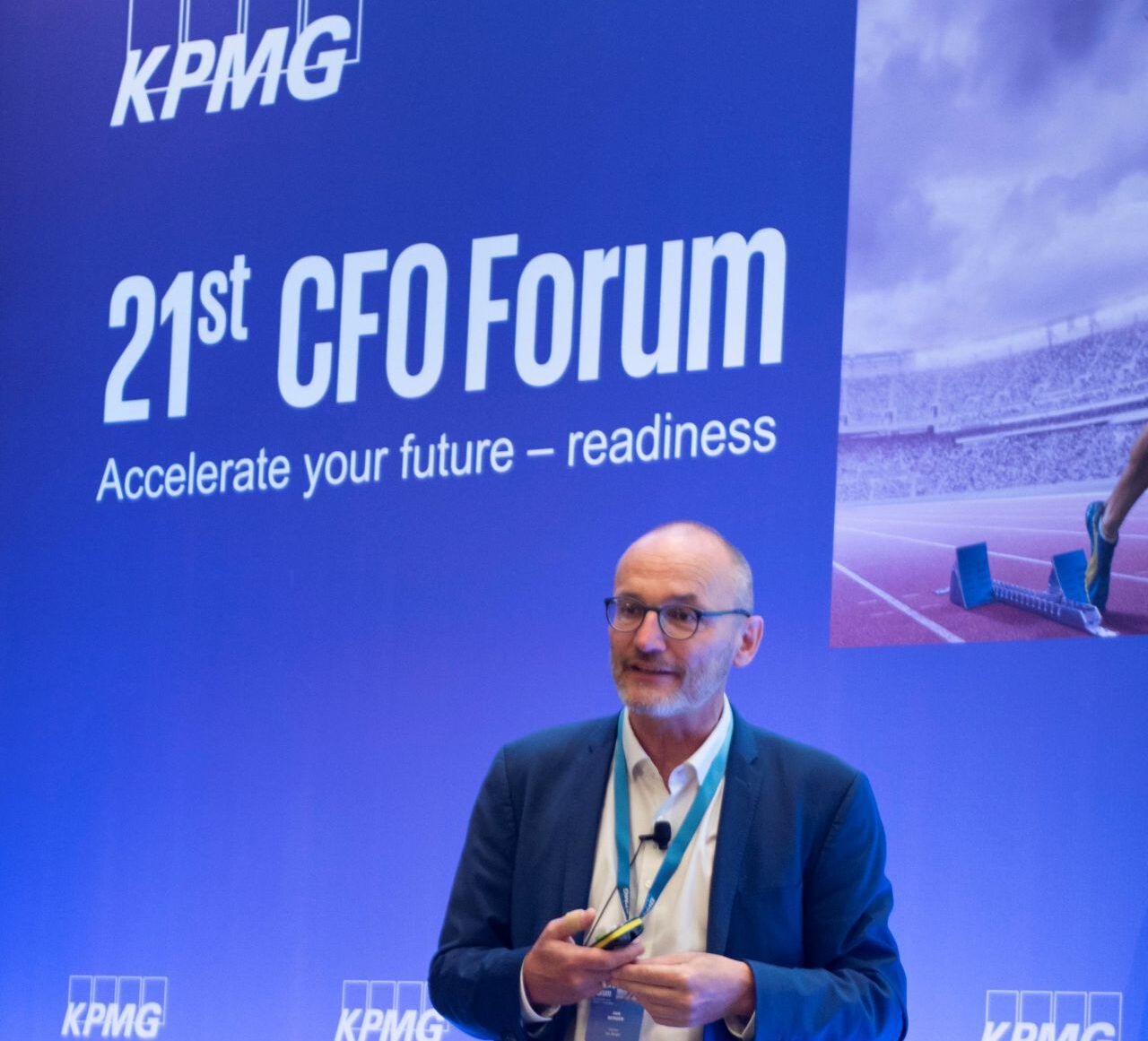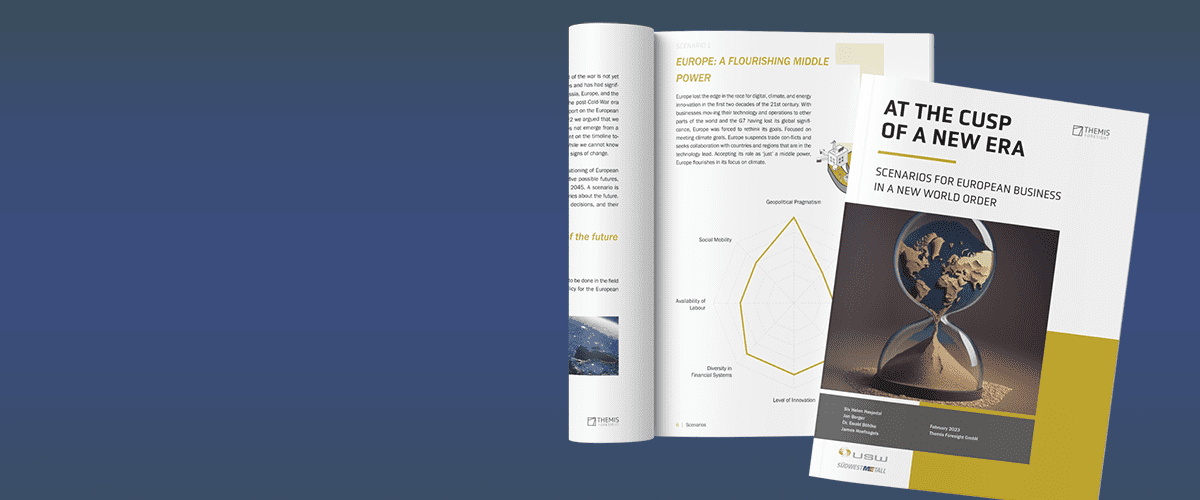85% believe in a successful industry in Germany: Results of our foresight study on future industry and work in Germany
In the picture: The participants of the Future Lab in the Look21 of the host Südwestmetall.
We are in the midst of a transformation. It’s not just the latest election results that show this: Established and new players are fighting for the favor of society – the assumption that traditional parties will continue to enter government in the future can no longer be taken for granted. We are in a phase of negotiating new values, in which there is a dissonance between renewal and persistence and the most diverse opinions and ideologies coexist. What applies to politics and society also applies to the economy. While deindustrialization dominates media discourse, Themis Foresight takes an open look at the future of the industry: nothing has been decided. As turbulent as these times may seem, they show above all that we are still in the midst of a reorientation. A Themis Foresight survey of over 90 business leaders, analysts and industry representatives shows that only around one sixth of respondents believe that deindustrialization will actually occur.
On June 18, our latest Future Lab took place in Stuttgart with the kind support of our partner company Südwestmetall. This event gave us the opportunity to present the results of our “Future of Industrial Work” study. These are based on 30 in-depth interviews and a comprehensive survey, which provide valuable insights into the future development of industrial work.
Study results: An overview
Carina Stöttner presented the key findings of the survey, which was conducted among more than 90 business leaders, analysts and industry representatives. It became clear that only around one sixth of those surveyed believe that deindustrialization is actually taking place. More than a third of respondents are convinced that Germany will have a significantly more diversified industry in the future and will act as a technological pioneer with deep tech solutions. Just under a third believe that industrial companies will continue to relocate their production abroad, but will implement innovations at home. One fifth are convinced that we will even have more industrial production in Germany in the future.

The most anticipated industrial developments include highly specialized and climate-neutral products, the circular economy, urban mining concepts and optimized current products and processes. Respondents do not see Germany as a producer of commodities; over 40% ranked this option last.
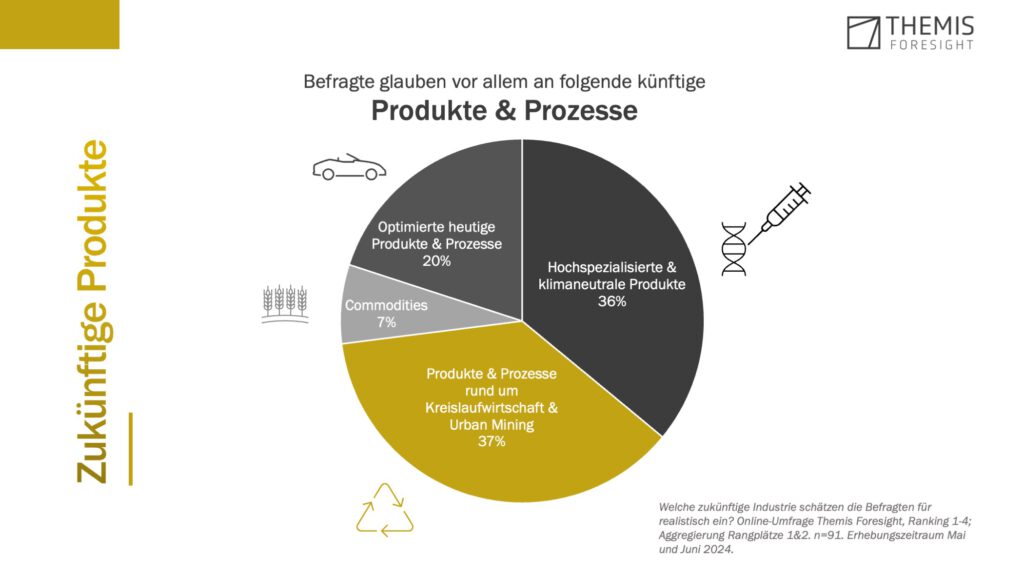
First frameworks for scenarios
With 29 committed participants, we had lively discussions that led to valuable insights. Based on the survey results and the in-depth interviews, initial frameworks for possible future scenarios for industrial work were discussed:
1. deep-tech industry: An innovative global industry that creates new industrial fields and enters into strong partnerships. These include new manufacturing processes, strong biotechnology, advanced computing possibilities and developments in robotics.
2 Made in Germany / Europe: Greater regionalization with reshoring and nearshoring of industrial production in Europe. Both protectionist approaches and open-minded options were discussed, with all their advantages and disadvantages.
3. designed in Germany, made in X: A relocation of production to other countries, which creates new capacities for innovation and lead plants in Germany and creates space for technological supremacy.
Future qualification requirements
Each of the scenarios entails different qualifications and specialist requirements. Most respondents believe that we will primarily need highly qualified specialists. They are closely followed by technically sound new collar workers and dual-trained specialists. Only a fraction believe that all skill levels – including low-skilled workers – will still have a place in the future of industrial work. Education, training and further education are therefore the key to future industrial success and social peace.
Social impact and challenges
The discussions in the Future Lab showed that all scenarios offer scope for both social stability and division. However, it was assumed that social problems could be solved better with greater prosperity.
A high degree of automation could lead to low-skilled workers in particular losing their jobs, while highly skilled workers are confronted with an overload of work. In the “Designed in Germany, made in X” scenario in particular, it is mainly the educated elite who benefit from high-paying jobs – a social divide would be conceivable. In addition to training top talent, such a transformation should also focus on the retraining and socially meaningful integration of former industrial workers.
A compartmentalized economy – in the example of greater regionalization – could lead to politics specifically regulating automation in order to promote an apparently people-friendly society, so that human jobs are secured, for example. However, what appears to be people-centered could mean a loss of innovative strength and productivity and an associated loss of prosperity, which could possibly lead to social unrest.
The “deep tech industry” scenario seems to create a humane balance in society. However, it does not come without challenges: If technological change is not carefully monitored, tech enthusiasts and tech opponents could come up against each other, especially when it comes to ethical questions about genetically modified plants, AI, robotics or research into as yet unknown phenomena.



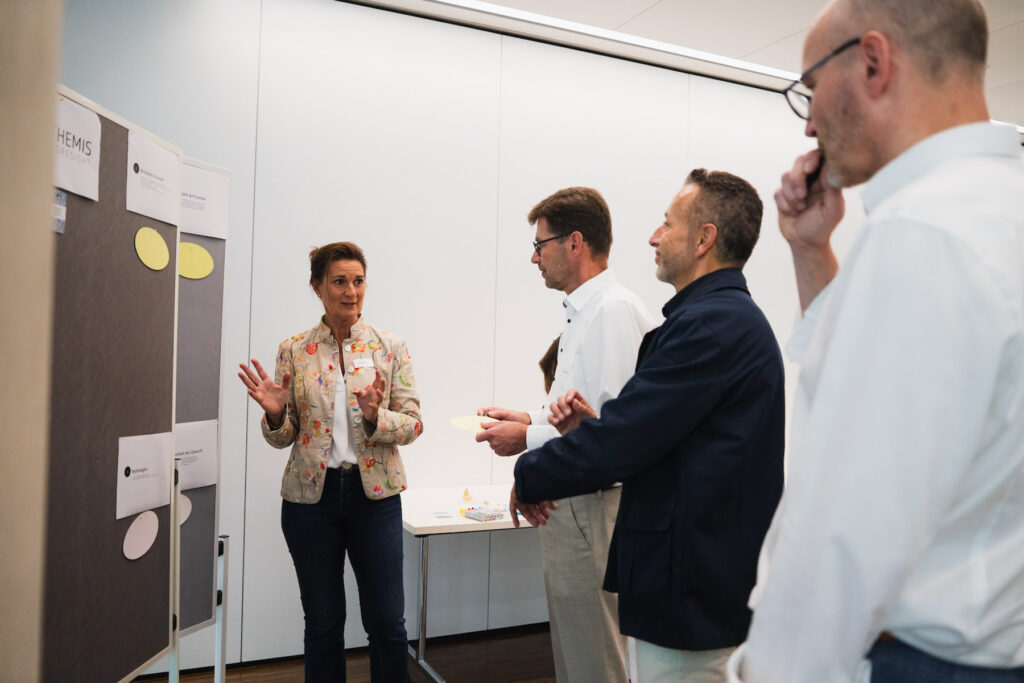
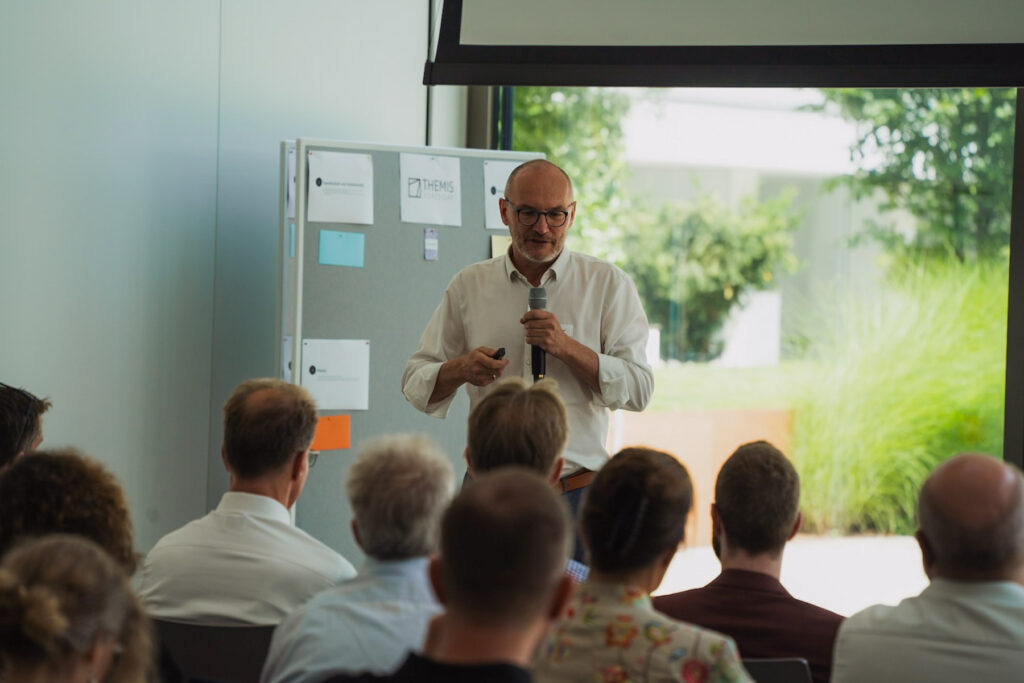
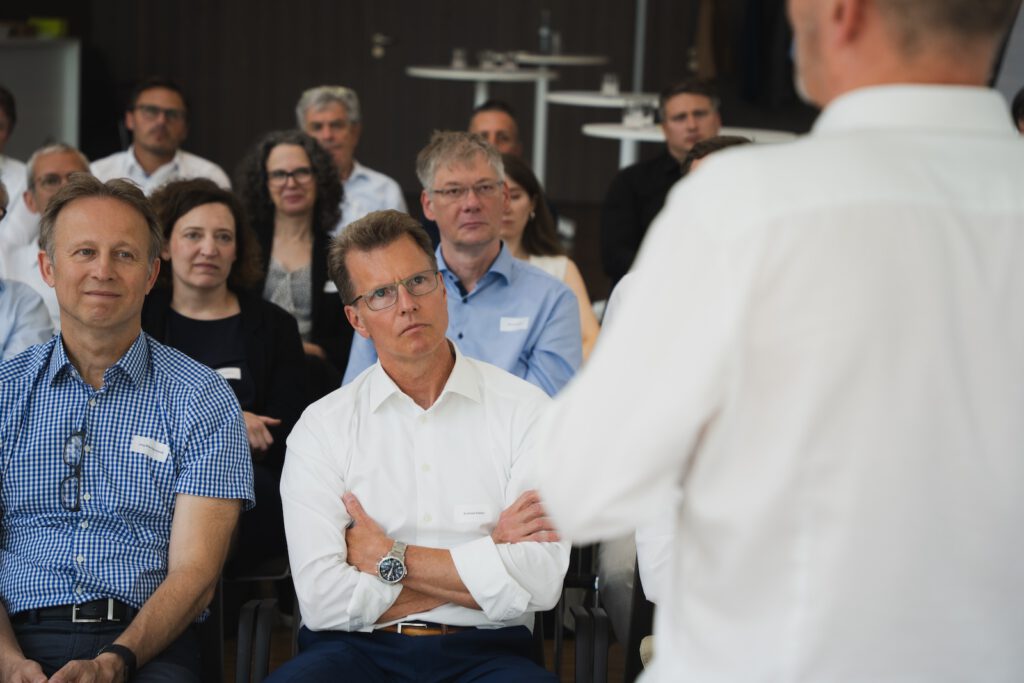
Perspectives and outlook
In a scenario of a highly networked, global world, Germany could act as a pioneer in the field of deep tech and play a leading role on the global stage. The question arose as to whether developing countries could skip the manual industrial phase and directly establish a highly automated and more climate-friendly industry. This could lead to a more globally balanced and cooperative economy, but also to new competitors.
In a scenario of regionalization and reshoring, it is realistic to assume that this process will take place at European level rather than purely nationally. A protectionist approach could lead to economic stagnation and a loss of prosperity, while an open-minded approach offers scaling opportunities in local-for-local strategies and thus enables global competitiveness and innovative strength.
Next steps
The Future Lab has shown that the future of industrial work still leaves many questions unanswered. The analysis will be finalized in the coming weeks and published on our website. The next Future Lab will take place on October 17, 2024, and interested participants can contact Carina Stöttner(cs@themis-foresight.com).
In the next Future Lab, we will present the final scenarios and derive a desirable picture of the future for the industry. Industry representatives are cordially invited to participate.
We would like to thank all participants for their valuable contributions and the numerous pieces of feedback, which will be incorporated into the further development of the scenarios. Together we are shaping the future of industrial work.
